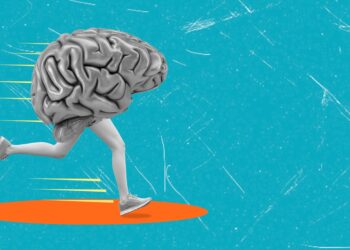Doing badly can ironically become a moment of potential liberation. Through it you can rewrite the story of who you are.
Article by Scott Young — writer, programmer, traveler and avid reader of interesting things.
It’s easy to be dismissive of the following attitude: “Don’t those people realize that you can learn anything, as long as you’re persistent and use the right approach?”
But feelings aren’t rational, so taking a nagging stance to encourage people to learn hard things is a waste of time. If you feel like you can’t learn math, French or samba, me telling you differently won’t change things.
The truth is, I’ve had my own moments of doubt and frustration, and not even that long ago. In January 2019, I started learning salsa dancing with my wife. She has danced for years, although never salsa, whereas I’ve done very little. Immediately, in the first classes, the overwhelming feeling was, “I hate this.” Not because I don’t think learning to salsa couldn’t be cool, but because I see myself in the mirror. My steps are out of sync. I’m not on the rhythm. When I do partner dancing, I forget how to do it, and then we switch partners before I get a chance to figure it out.
The thing is, I know this is just the frustration barrier. I know that once I get past that novice level and start being able to do it (which is going to happen with enough practice), I will start to enjoy it. If I put in enough time, I might even really love salsa dancing. But that’s not how it feels. My brain sees me slightly underperforming and the immediate, visceral sense is: “You’re not good at this, you should stop right now and quit embarrassing yourself.”
HOW DO YOU CHANGE YOUR BELIEFS ABOUT LEARNING?
I think there’s a few approaches you can take to overcome these sorts of learning challenges:
1. Dive straight in
Ultra-learning, in my opinion, often works well because it compresses the frustration barrier to a shorter period of time. Going no-English to learn a language is stressful, but the stress lasts for a couple weeks, rather than a couple years as it can in traditional classrooms. Because the stress is short, you can more easily leap over it compared to the non-stop grind of emotional struggle you can feel when a skill never quite gets out of that frustration period
2. Avoid comparison
My feelings about salsa were largely driven by my classmates. They were better than me. Whenever we, as human beings, sense a comparative disadvantage, it’s as if our brain immediately tries to avoid practicing the skill. I’m not sure if this is an evolved adaptation towards specializing in our strengths (if so, it would have to predate our modern, specialized economy), or whether this is simply because being low-skilled is low-status and our status-seeking instincts override the long-term goals of learning.
However, one simple way to avoid this problem is to put yourself in projects or situations that defy comparison. One-on-one tutoring immediately removes the “I’m the worst in the class” feeling. It also removes the “I’m the best in the class” laziness that can afflict high-performing students. Even structuring a project that is intense and un- usual often avoids this problem. When I was doing the MIT Challenge, I never felt bad about struggling with concepts or ideas because nobody else was doing this self-education thing so there was no expectation of performance.
3. Embrace the
“I hate this,” isn’t a feeling—it’s a sentence. It’s a sentence you mentally utter in automatic response to certain things going on in your environment. However, recognize that this isn’t a single, unified experience, but several discrete experiences happening in lockstep:
1. You notice you’re doing something badly.
2. You notice that others may notice you’re doing something badly.
3. You feel embarrassed, and start to feel bad.
4. You feel like you need to escape or stop.
5. You say to yourself, “I hate this.”
This is a train of thought that you can get off at any stop, you just choose to ride it all the way to the terminal station. If you’re mindful of it, you can set it on alternate tracks. What if when you notice you’re doing badly, you reaffirmed, “But it’s okay, doing things badly is what learning is all about. That’s why I’m here”? Or what if you start to feel embarrassed and you say to yourself, “It’s okay if people think I’m bad at this. As long as I’m not hurting anyone and trying my best, nobody will hold it against me”?
When you feel you need to escape you say, “Let’s just go a little bit longer”? As you examine it more closely, the feeling of frustration itself becomes a potential space for new experiences. You realize how much your own feelings of inadequacy straitjacket you into a limited view of your life. The pain you feel from doing badly, ironically, becomes a moment of potential liberation because through it you can rewrite the story of who you are.












